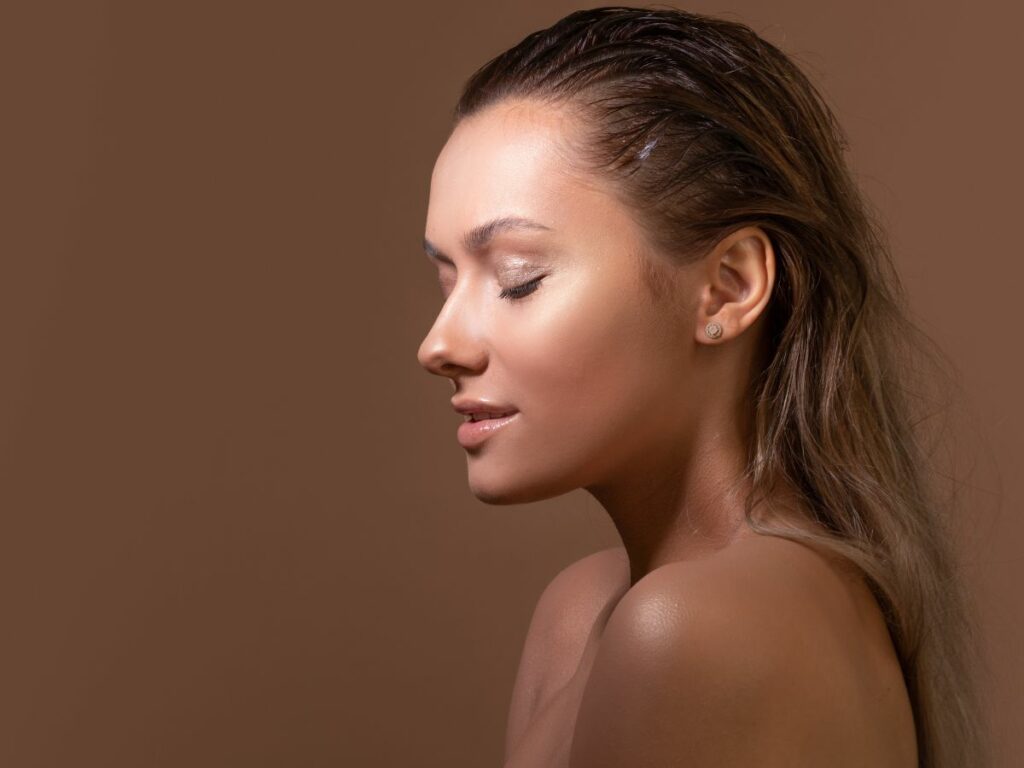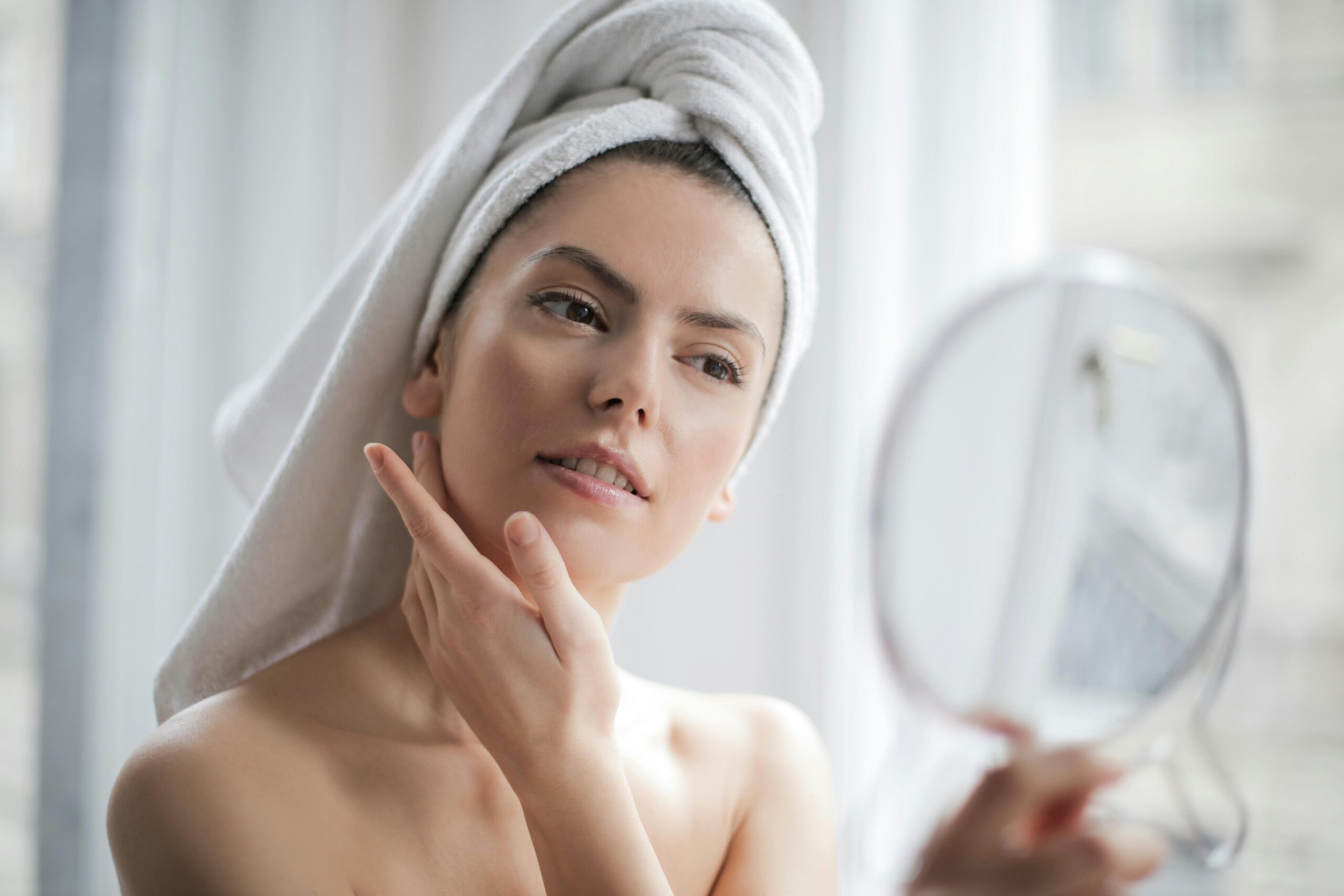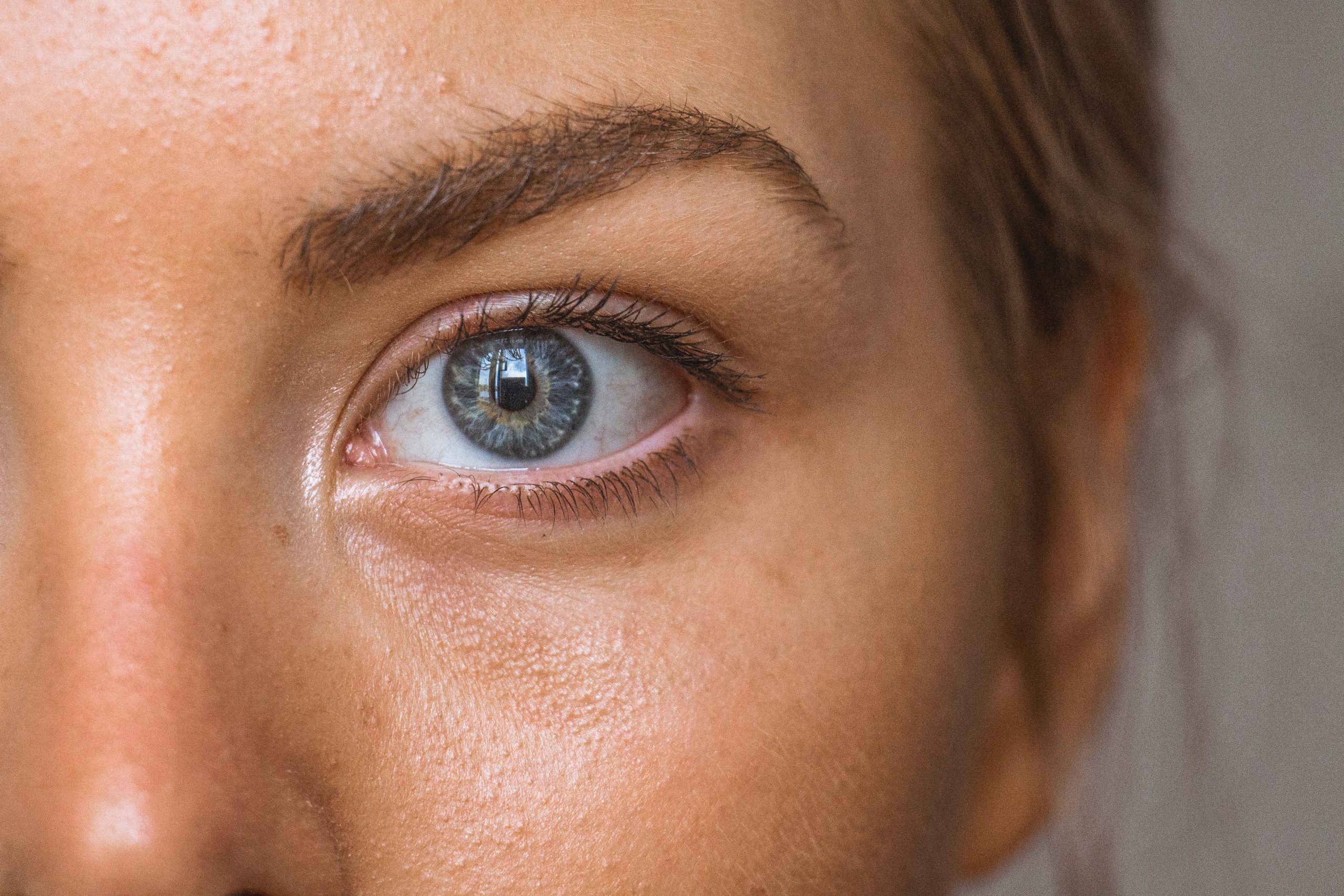Mysterious hormones – we know we have them coursing through our bodies, but how exactly do they impact our health and wellbeing? An imbalance of hormones can influence mood, energy, skin, digestion as well as reproductive health. As beauty professionals you are treating skin disorders and ageing skin every day. Understanding how hormones affect the skin and the overall wellbeing of your clients is essential to providing the most effective and holistic skincare treatments.
What Are Hormones?
Within the body there are tiny glands that form the Endocrine System. Think ovaries, adrenal glands and thyroid glands, to name a few. These glands secrete different hormones, sometimes known as chemical messengers, that send messages to different parts of the body.
They have significant roles to play, such as telling the body how to breathe, grow, eat and drink. While the messages sent are, for the most part, of great benefit, if hormone levels are higher or lower than normal, problems can arise. This imbalance can significantly impact overall health. As we age, our hormone levels begin to decline, sometimes quite drastically, and this is most obvious in the look and feel of the skin.
How Do Hormones Affect The Skin?
Ageing
One of the most known and incredibly important hormones is oestrogen. While predominantly a female hormone, it is worth noting that it is also produced in males but obviously at much lower levels.
When we are young, and our oestrogen levels are optimal, they help maintain fluid balance and structural integrity. They also increase collagen production, allowing the skin to remain plump, hydrated, and wrinkle-free.
As we age, oestrogen levels decline significantly, leading to thin, fragile skin, wrinkle formation and dryness. This is because oestrogen produces hyaluronic acid which keeps skin youthful. Oestrogen also influences the production of collagen and elastin, which are the building blocks of firm skin. It also impacts muscle mass, metabolism and energy levels, so overall health is affected.
For your male clients, testosterone also plays a part in ageing skin. Levels drop with age, and this is linked to wrinkles, weight gain, muscle loss and thinning hair.
Human Growth Hormone (HGH) is another very significant hormone linked to ageing. This clever protein is produced by the pituitary gland, which stimulates cell, muscle and bone growth. Unfortunately, HGH also declines as we age and impacts skin, metabolism, energy, body fat and even sleep.
Clearly, hormones play a significant role in the ageing process of the skin. Treating clients with evidence-based skincare treatments and product options is essential. Products that help the skin to produce more collagen or provide oestrogen support, will make a big impact on the look and feel of the skin.
Hormonal Acne
We all remember puberty and the havoc it can play on the skin! Unfortunately, acne can appear at any age and is often linked to hormonal changes. During puberty, acne tends to appear on the T-zone, which includes the forehead, nose and chin. In adults, acne typically appears on the lower cheeks and jawline.
Hormonal acne can present itself as pimples, blackheads, whiteheads and cysts.
Most acne is caused by an overproduction of oil or sebum, which clogs the pores. How much oil you produce is very much dictated by your hormones. The imbalance of hormones can be caused by menstruation, polycystic ovary syndrome (PCOS), menopause or increased androgen levels (such as testosterone).
The week before a woman’s period starts, oestrogen levels drop, which can cause acne breakouts. It can happen at other stages of the menstrual cycle too.
During the transition into menopause, hormone levels change with oestrogen dropping and testosterone increasing, which can cause dry, itchy skin, acne, sagging and wrinkling.
In terms of skin treatments, choosing gentle products that respect the skin barrier and protect and enhance the skin microbiome are key to long term skin health.
Alpha-hydroxy Acids (AHAs) can also help to remove excess dead skin cells, which may be clogging pores and has been shown to improve acne scarring.
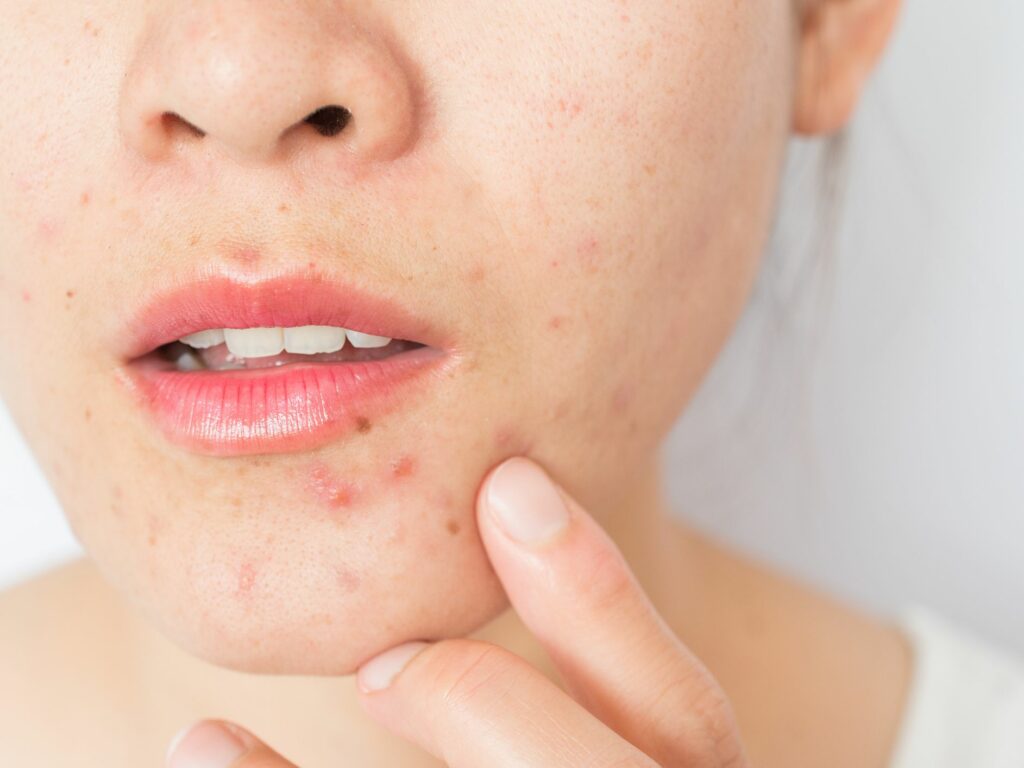
Pigmentation or Melasma
Pigmentation is one of the most challenging skin conditions to treat. Melasma can be caused by sun exposure, but more commonly, it is indicative of pregnancy or taking the contraceptive pill when hormonal activity is elevated. The increase and fluctuations of the reproductive hormones stimulate melanocytes in the skin. This leads to darkened pigmentation patches appearing on the forehead, nose and cheeks.
Often melasma will fade with time, especially if it comes on during pregnancy. Using high UV sun protection is essential to minimising the appearance of pigmentation.
Hormonal Health and Diet and Lifestyle
We had the privilege of welcoming expert naturopath and nutritionist, Belinda Kirkpatrick in a recent Future Beauty Talk to discuss hormonal health. Belinda’s holistic approach to health looks at how to manage hormonal changes through diet and lifestyle.
On the discussion of hormonal acne, Belinda advises removing dairy from the diet, centering your diet around protein, good fats and fresh vegetables, cutting down on sugar and consuming more water. Supplementing with zinc has been found to have good results. Belinda also suggests herbal teas such as spearmint, which reduces excess testosterone levels and nettle leaf for the lymphatic system and liver.
Encouraging your clients to look at their lifestyles and making specific changes can go a long way to relieving some of the hormonal symptoms.
Top Tips
- Advising them on a skincare routine that works for their unique needs and choosing highly nutritive, scientific-based skincare.
- Finding out what triggers their skin – maybe keeping a diary of foods they eat and other lifestyle factors – how much sleep are they getting? Are they experiencing high levels of stress? Do they eat too much processed food? etc.
- Hydration is so important – Belinda advises clients need to be consuming 30ml of water per KG of body weight. Tea or coffee is not a substitute for water!
- Sleep is essential to keeping hormones in balance – 8 hours uninterrupted sleep each night – more difficult than it sounds, right!
- Discovering ways to relax and de-stress – meditation, yoga, massage for example.
Gaining a thorough understanding of how powerful hormones are on the skin will allow you, the skin therapist, to better treat your clients and provide solutions that actually make an impact on their health and wellbeing, as well as their skin.
To watch the full interview with Belinda Kirkpatrick just click here. Belinda’s passion and knowledge shine through as we delve into some fascinating questions related to hormonal health. We are sure you won’t be disappointed!:
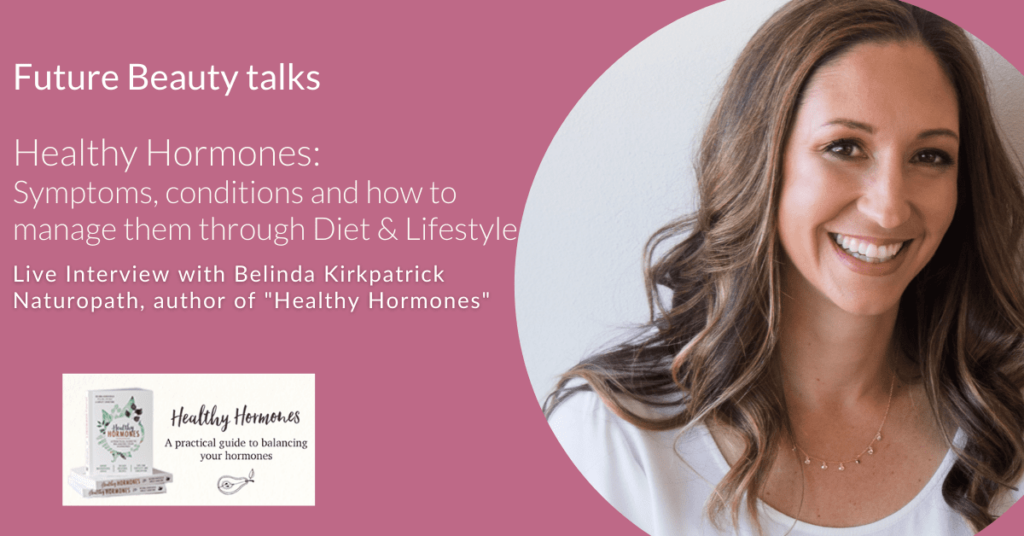
Vital Plus
At Vital Plus, we choose products that harness the skin’s natural ability to heal itself. We believe a holistic approach to skin health is critical in dealing with any skin condition.
So, there you have it. The need to keep learning within our profession is vital to providing your clients with the skin they desire.
I hope this blog convinces you to delve further.
We love sharing our passion for healthy and beautiful skin with our clients and love seeing their successes. That’s what inspires us daily.
Vital Plus customers benefit from ongoing support, technical, marketing, management, Future Beauty Talks, setting up promotions, and many activities to enhance knowledge, industry awareness, and financial success. Supporting you in running a thriving beauty business is our purpose.
For more details about what we can offer you and your business, don’t hesitate to contact us: 1300 437 638
FAQs
Q: How do hormones impact the skin’s appearance during puberty?
A: During puberty, hormone levels, particularly androgens like testosterone, increase significantly. These hormones can lead to increased sebum production in the skin’s oil glands, resulting in oily skin and potential acne breakouts. Additionally, hormonal changes may cause the skin to appear more sensitive, leading to redness or irritation.
Q: Can hormonal fluctuations during the menstrual cycle affect the skin?
A: Yes, hormonal fluctuations throughout the menstrual cycle can impact the skin. In the days leading up to menstruation, estrogen levels drop, which can cause the skin to become oilier and more prone to breakouts. Additionally, progesterone levels rise, leading to water retention and potential skin puffiness.
Q: How do hormones affect skin conditions like acne?
A: Hormones play a significant role in the development of acne. Androgens stimulate the skin’s oil glands, leading to an excess of sebum production. This excess oil, along with dead skin cells, can clog pores and create an environment ideal for acne-causing bacteria. Hormonal imbalances can exacerbate acne, especially in individuals with a genetic predisposition to the condition.
Q: Can hormonal changes during pregnancy affect the skin?
A: Yes, hormonal changes during pregnancy can have a notable impact on the skin. The surge in hormones, particularly estrogen and progesterone, can lead to a “pregnancy glow,” where the skin appears radiant due to increased blood flow. However, some pregnant individuals may also experience skin issues like melasma (dark patches) or acne due to hormonal fluctuations.
Q: How do hormones influence skin aging?
A:
As we age, hormonal changes occur, particularly a decrease in estrogen and progesterone levels in women during menopause. These hormonal shifts can lead to a reduction in collagen and elastin production, making the skin less firm and more prone to wrinkles. Additionally, declining hormone levels can cause decreased skin hydration and slower skin cell turnover, resulting in a duller complexion.
It’s important to note that hormone-related skin issues can vary from person to person, and consulting a dermatologist can be beneficial for understanding and addressing specific concerns.
